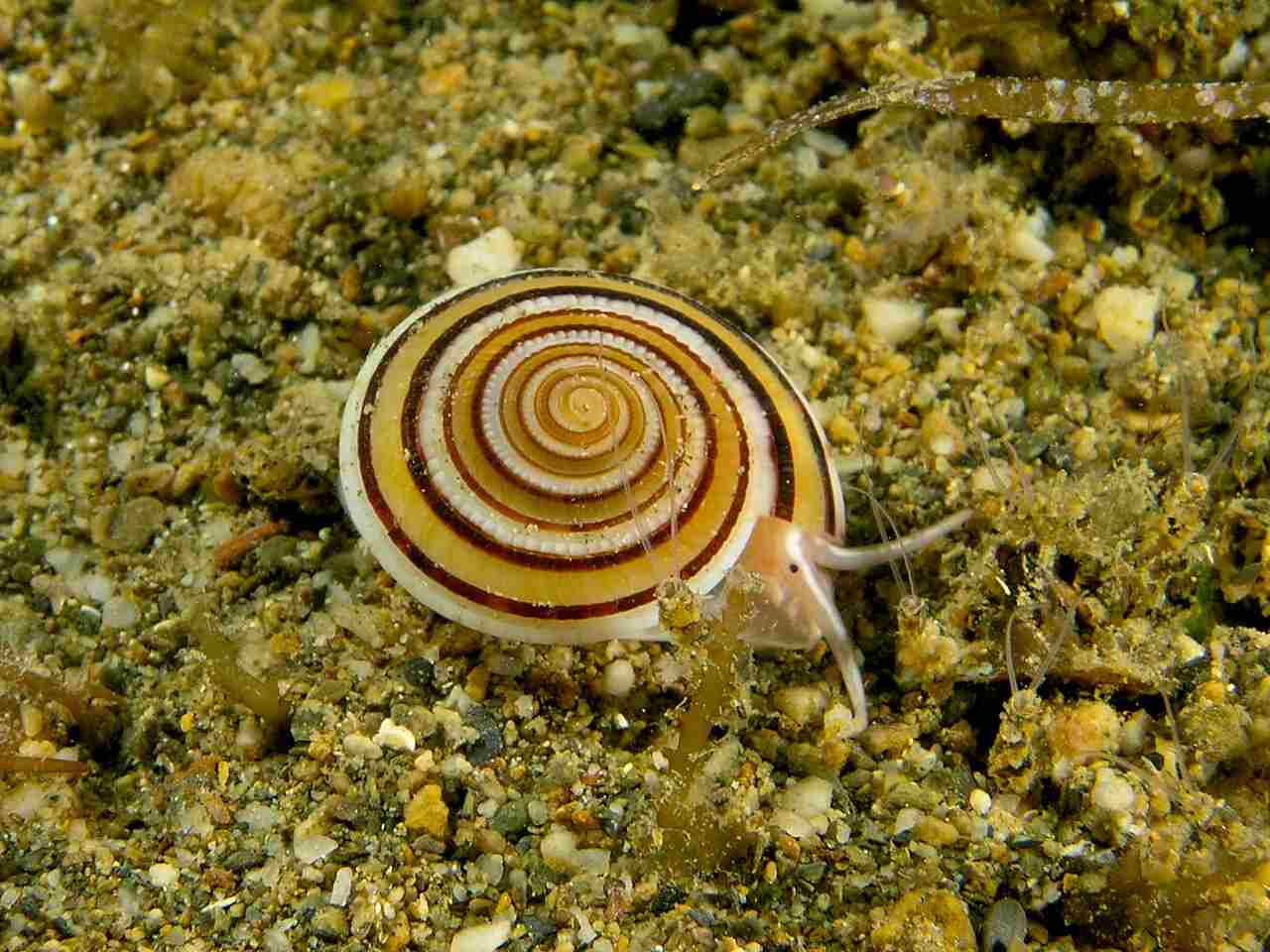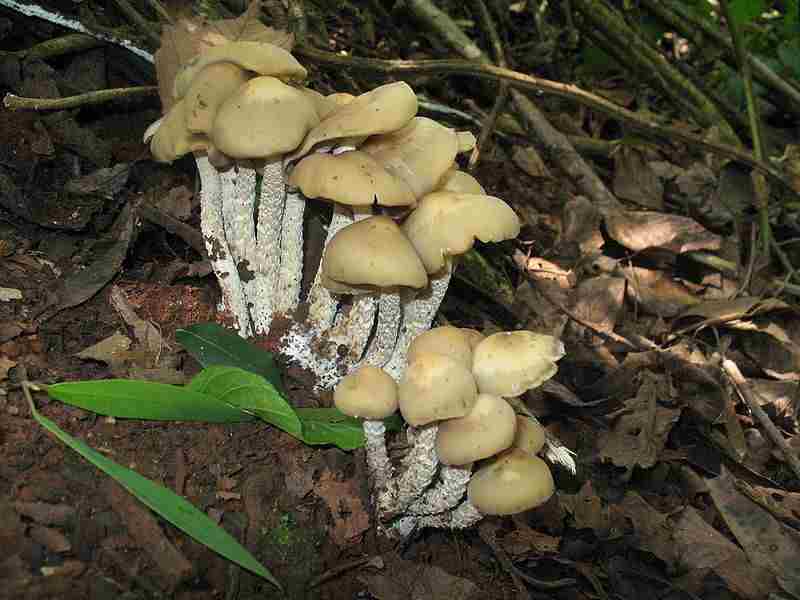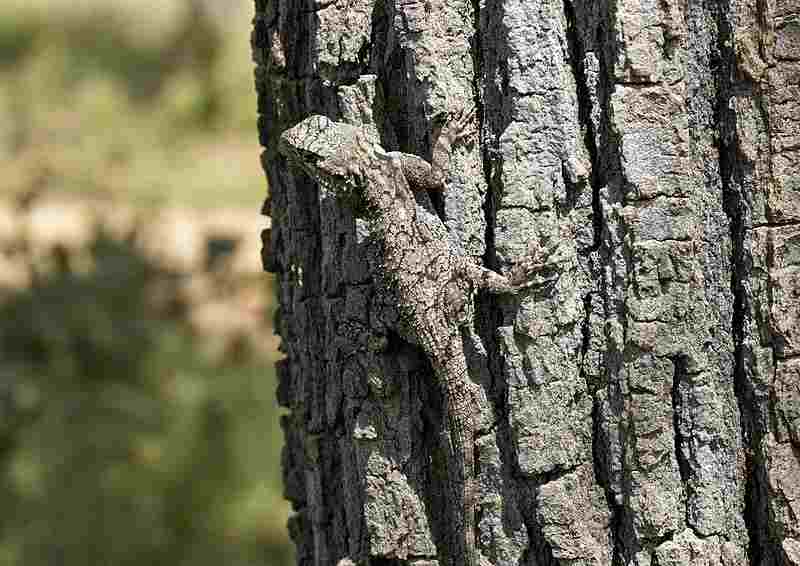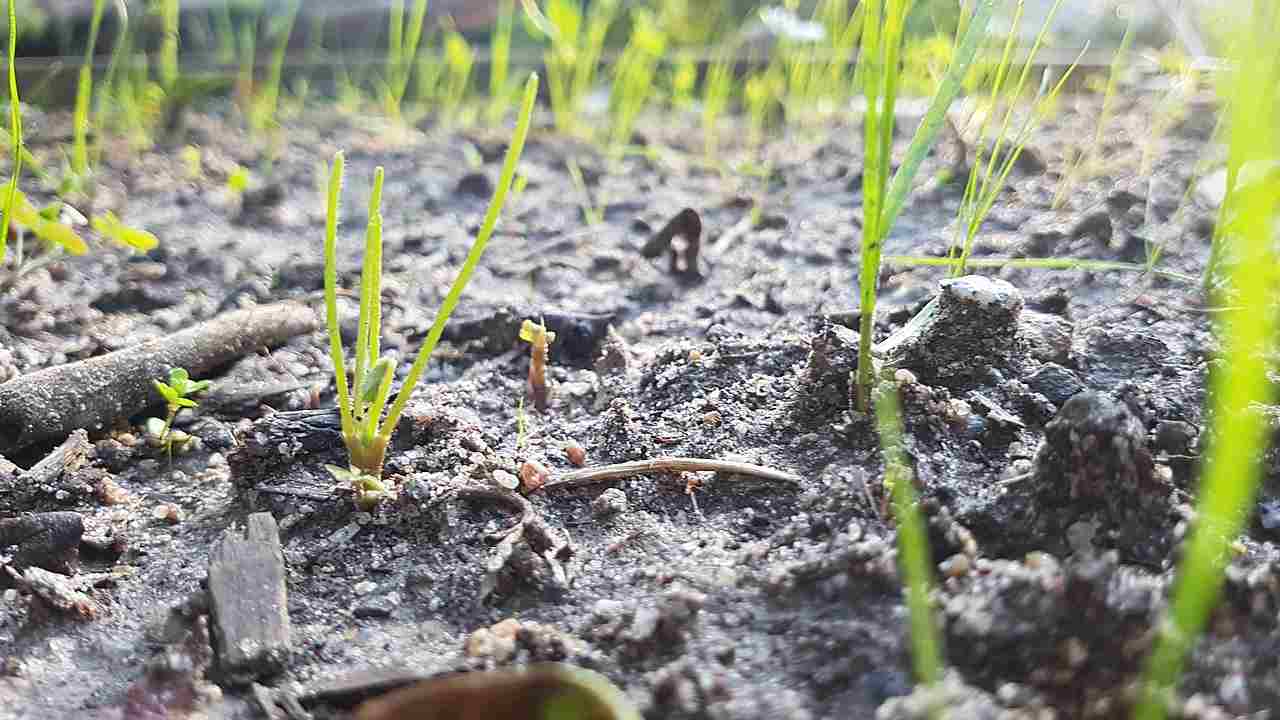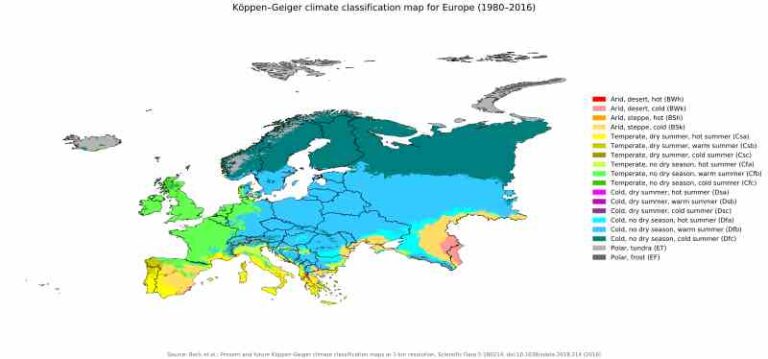What Is The Role Of Decomposers And Detritivores In An Ecosystem? 23+ Answers
The role of decomposers and detritivores in an ecosystem mainly includes breaking down organic matter, recycling nutrients, and facilitating nutrient cycling. These organisms contribute to soil formation and structure, enhance soil fertility, promote plant growth, and decrease waste accumulation. They also reduce disease risk by decomposing dead organisms, support food webs by serving as a food source, and contribute to carbon sequestration. Decomposers and detritivores help control pest populations, drive microbial biodiversity, assist in aquatic ecosystems, regulate ecosystem energy flow, act as bioindicators, and facilitate the breakdown of toxins in the environment.
1. Breaking Down Organic Matter
Decomposers and detritivores play a crucial role in breaking down organic matter in ecosystems. They are responsible for consuming and degrading dead plant material, dead animal remains, and other organic debris. This breakdown process involves the transformation of complex organic compounds into simpler forms that can be readily used by other organisms. Without decomposers and detritivores, organic matter would accumulate, leading to a buildup of waste and a decrease in nutrient availability for living organisms.
The work of decomposers, such as bacteria and fungi, and detritivores, like earthworms and certain insects, helps maintain the health of ecosystems by ensuring that organic matter does not stagnate. By breaking down dead material, they contribute to the continuous flow of nutrients in the environment, supporting a cycle of growth and decay that is fundamental to life on Earth. This role is essential for ecosystem sustainability, as it keeps the natural processes of decomposition and nutrient recycling in balance.
2. Recycling Nutrients
Decomposers and detritivores are critical for recycling nutrients within ecosystems. When they break down organic matter, such as dead plants and animals, they release essential nutrients like nitrogen, phosphorus, and potassium back into the soil or water. This process allows these nutrients to be reused by living organisms, particularly plants, which require them for growth and development. The recycling of nutrients is a key factor in maintaining the productivity and health of ecosystems.
This nutrient recycling not only supports plant growth but also influences the broader food web. As plants absorb the recycled nutrients, they become a source of energy and sustenance for herbivores, which in turn feed carnivores. Thus, the work of decomposers and detritivores establishes a continuous cycle of energy and nutrients, helping to sustain diverse biological communities. Without their role in recycling nutrients, ecosystems would face nutrient depletion, resulting in decreased productivity and loss of biodiversity.
3. Facilitating Nutrient Cycling
Nutrient cycling is a fundamental process in ecosystems, and decomposers and detritivores are at its core. Through their activities, they transform dead organic matter into simpler chemical forms that can re-enter the biological cycle. This conversion is essential for maintaining a balanced flow of nutrients across ecosystems, as it ensures that nutrients do not become locked in unusable forms. Decomposers and detritivores help move nutrients from one part of the ecosystem to another, facilitating the continuous cycling of these critical elements.
The impact of nutrient cycling is far-reaching. It influences plant growth, soil fertility, and the overall energy flow within ecosystems. By ensuring that nutrients are cycled efficiently, decomposers and detritivores help maintain ecosystem stability and resilience. This process is vital for supporting a dynamic equilibrium, where nutrients are neither depleted nor excessively accumulated, allowing ecosystems to adapt to changing environmental conditions.
4. Decomposing Dead Plant Material
Decomposers and detritivores excel in decomposing dead plant material, such as fallen leaves, wood, and other vegetative debris. Through their enzymatic and physical breakdown processes, they convert this plant matter into simpler organic compounds. This decomposition process is crucial for preventing the buildup of dead plant material, which could otherwise accumulate and hinder new plant growth. Decomposition also plays a key role in returning valuable nutrients to the soil, fostering a fertile environment for future plant growth.
As decomposers like fungi and bacteria break down complex plant material, they create humus, a vital component of healthy soil. Humus helps retain moisture, improve soil structure, and provide a slow-release source of nutrients for plants. This transformation of dead plant material into beneficial soil components has a significant impact on the entire ecosystem, promoting a cycle of growth and decay that sustains diverse plant and animal communities.
5. Decomposing Dead Animal Remains
The decomposition of dead animal remains is another critical function performed by decomposers and detritivores. These organisms break down the tissues and bones of dead animals, converting them into simpler organic compounds. This process is essential for returning nutrients like nitrogen and phosphorus to the ecosystem, where they can be reused by other organisms. Without decomposers and detritivores, animal remains would accumulate, posing health risks and disrupting the balance of the ecosystem.
Through their decomposition work, these organisms also play a role in preventing the spread of disease. By breaking down dead animal remains, they help remove potential breeding grounds for harmful bacteria and parasites that could otherwise pose a risk to other organisms in the ecosystem. In this way, decomposers and detritivores not only contribute to nutrient cycling but also to the overall health and safety of the environment.
6. Contributing To Soil Formation
Decomposers and detritivores are fundamental in contributing to soil formation. By breaking down organic matter into finer particles, they help create a rich, fertile layer of soil known as humus. This organic layer plays a crucial role in soil formation, providing essential nutrients and improving soil structure. The activity of decomposers and detritivores transforms raw organic material into a substance that can support a wide range of plant life, fostering the growth and sustainability of ecosystems.
The soil formation process has broad implications for the entire ecosystem. As decomposers and detritivores convert dead plant and animal matter into humus, they enhance soil quality, promoting water retention, aeration, and nutrient availability. This improved soil structure supports plant growth and, in turn, the organisms that rely on those plants. The continuous contribution of decomposers and detritivores to soil formation is crucial for maintaining healthy, thriving ecosystems.
7. Supporting Soil Structure
Soil structure is a key determinant of ecosystem health, and decomposers and detritivores play a pivotal role in its development and maintenance. By breaking down organic matter and contributing to the formation of humus, they help create a soil structure that is more porous and aerated. This improved structure allows for better water infiltration, root growth, and microbial activity. In this way, decomposers and detritivores help establish a soil environment conducive to plant growth and ecosystem productivity.
Additionally, the physical activity of detritivores, such as earthworms and certain insects, contributes to soil structure. As they burrow through the soil, they create channels that enhance aeration and water movement. These activities also help mix organic matter into the soil, further enriching its quality. The combined efforts of decomposers and detritivores ensure that soil remains a dynamic, living component of ecosystems, supporting a diverse range of plant and animal life.
8. Enhancing Soil Fertility
The role of decomposers and detritivores in enhancing soil fertility is fundamental to ecosystem sustainability. As they break down organic matter, they release a wealth of nutrients into the soil, creating a fertile environment for plant growth. This nutrient release is a key aspect of the nutrient cycling process, where elements like nitrogen, phosphorus, and potassium are made available to plants. The increased fertility provided by decomposers and detritivores supports robust plant growth, leading to more productive and biodiverse ecosystems.
Enhanced soil fertility has a cascading effect throughout the ecosystem. As plants grow more vigorously, they provide more food and habitat for herbivores, which, in turn, sustain carnivores and other predators. This chain of interactions demonstrates the importance of decomposers and detritivores in establishing a productive ecosystem. By ensuring that soil is rich in nutrients and conducive to plant growth, these organisms play a crucial role in maintaining the stability and resilience of ecosystems.
9. Promoting Plant Growth
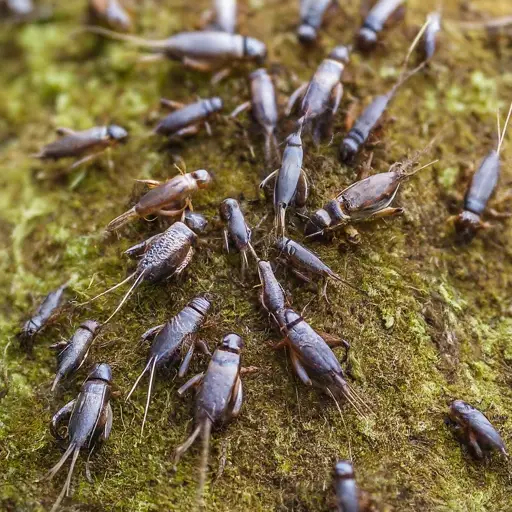
Decomposers and detritivores promote plant growth by recycling essential nutrients into the soil. When they break down organic matter, they release compounds that plants need for growth, including nitrogen, phosphorus, and potassium. This nutrient-rich environment enables plants to thrive, leading to increased vegetation cover and diversity. The presence of decomposers and detritivores is thus closely linked to healthy plant communities and, by extension, the broader ecosystem that relies on those plants.
By promoting plant growth, decomposers and detritivores indirectly support other organisms within the ecosystem. Plants are the foundation of most food webs, providing food and shelter for herbivores and, subsequently, predators. A lush plant environment also contributes to a stable climate, as vegetation plays a role in carbon sequestration and maintaining air quality. Through their role in promoting plant growth, decomposers and detritivores help create vibrant and balanced ecosystems.
10. Decreasing Waste Accumulation
Decomposers and detritivores play a vital role in decreasing waste accumulation in ecosystems. By breaking down dead plant material, animal remains, and other organic debris, they prevent these materials from accumulating and causing environmental issues. The rapid decomposition of organic matter ensures that waste does not become a source of pollution or harbor diseases. This waste management function is crucial for maintaining a clean and healthy ecosystem.
Reducing waste accumulation also contributes to the overall health and aesthetics of the ecosystem. Without decomposers and detritivores, landscapes would be littered with decaying organic matter, leading to unpleasant odors and a degraded environment. Their role in cleaning up waste is essential for maintaining a balance in nature, ensuring that ecosystems remain functional and sustainable. By converting waste into valuable nutrients, decomposers and detritivores help ecosystems thrive.
11. Reducing Disease Risk By Decomposing Dead Organisms
Decomposers and detritivores significantly reduce the risk of disease by rapidly decomposing dead organisms. When animals or plants die, their remains can become breeding grounds for harmful pathogens, including bacteria, viruses, and fungi that cause diseases. By breaking down these dead organisms quickly, decomposers and detritivores minimize the time available for these pathogens to proliferate, thereby reducing the risk of disease spread within the ecosystem.
The disease-reduction role of decomposers and detritivores is particularly important in maintaining ecosystem health and stability. If dead organisms were left to decompose slowly, they could pose a risk to other living organisms and even humans who come into contact with them. By expediting the decomposition process, these organisms not only contribute to nutrient cycling but also to the safety and health of the ecosystem. This rapid breakdown of dead organisms helps create a cleaner and safer environment, promoting overall ecosystem resilience.
12. Supporting Food Webs As A Food Source
Decomposers and detritivores are integral components of food webs, serving as a food source for various other organisms. Many small predators, such as certain insects, birds, and mammals, rely on decomposers and detritivores for sustenance. This role as a food source links them to the broader ecosystem, creating a complex web of interactions that supports biodiversity and ecological balance. By providing a reliable food source, decomposers and detritivores contribute to the stability and resilience of food webs.
The presence of decomposers and detritivores in food webs also helps ensure a balanced energy flow within ecosystems. As they break down organic matter, they themselves become a source of energy for other organisms. This energy transfer contributes to the overall functioning of the ecosystem, supporting various trophic levels and promoting biodiversity. Without decomposers and detritivores serving as a food source, food webs would be less stable, potentially leading to disruptions in ecosystem dynamics.
13. Releasing Carbon Dioxide Into The Atmosphere
Decomposers and detritivores play a role in releasing carbon dioxide into the atmosphere through the process of decomposition. As they break down organic matter, these organisms metabolize carbon-based compounds, releasing carbon dioxide as a byproduct of their respiration. This release of carbon dioxide is a natural part of the carbon cycle, where carbon is exchanged between the Earth’s surface and the atmosphere. While carbon dioxide is a greenhouse gas, its release by decomposers and detritivores is a necessary process for maintaining the carbon balance in ecosystems.
The role of decomposers and detritivores in releasing carbon dioxide has broader implications for the global carbon cycle. This process contributes to the natural flow of carbon between different reservoirs, including the atmosphere, oceans, and land. Although carbon dioxide emissions from decomposition are a natural part of this cycle, human activities like deforestation and fossil fuel burning can disrupt this balance, leading to increased carbon dioxide levels and climate change. Thus, understanding the role of decomposers and detritivores in the carbon cycle is crucial for addressing environmental challenges.
14. Helping Control Pest Populations Through Competition
Decomposers and detritivores can help control pest populations through competition for resources. In many ecosystems, pests rely on organic matter for sustenance, whether it be plant material or animal remains. By breaking down these resources quickly, decomposers and detritivores can limit the availability of food for pests, thus reducing their populations. This competitive advantage helps maintain a balance in the ecosystem, preventing pest outbreaks that could otherwise disrupt ecological harmony.
Moreover, the activities of decomposers and detritivores can influence the habitats of pests, making them less favorable for survival and reproduction. By decomposing organic matter and contributing to soil formation, they can alter the environment in ways that discourage pest colonization. This indirect form of pest control is an essential aspect of maintaining a stable ecosystem without relying heavily on chemical pesticides, which can have detrimental effects on non-target organisms and overall biodiversity.
15. Transforming Complex Molecules Into Simpler Forms
Decomposers and detritivores specialize in transforming complex molecules into simpler forms, a crucial process for nutrient recycling in ecosystems. By breaking down complex organic compounds, such as cellulose, lignin, and proteins, they convert them into simpler molecules like amino acids and inorganic compounds. This transformation is essential for making nutrients accessible to plants and other organisms in the ecosystem, thereby supporting a continuous cycle of growth and decay.
The ability of decomposers and detritivores to transform complex molecules is driven by specialized enzymes and metabolic processes. Fungi, for example, can produce enzymes that break down tough plant materials like wood, while bacteria excel at decomposing proteins and other complex organic substances. This conversion process not only provides nutrients for other organisms but also helps prevent the accumulation of organic waste in ecosystems. By turning complex molecules into simpler, usable forms, decomposers and detritivores play a vital role in maintaining the nutrient balance and overall health of ecosystems.
16. Contributing To Carbon Sequestration
Decomposers and detritivores contribute to carbon sequestration, a process that captures and stores atmospheric carbon dioxide in the form of organic matter. As these organisms break down plant and animal material, a portion of the carbon is stored in the soil as humus, which can remain stable for long periods. This sequestration of carbon helps offset carbon emissions and plays a role in regulating the global carbon cycle. By contributing to the formation of carbon-rich soil, decomposers and detritivores play a part in mitigating climate change.
The role of decomposers and detritivores in carbon sequestration is crucial for maintaining a balance in ecosystems. When they break down organic matter, they release carbon dioxide into the atmosphere, but by forming humus, they also trap carbon in the soil. This dual role helps stabilize carbon levels, promoting a sustainable ecosystem. Carbon sequestration in soil is essential for creating resilient ecosystems and combating the effects of excess carbon dioxide in the atmosphere, making the work of decomposers and detritivores both locally and globally significant.
17. Assisting In Soil Aeration Through Their Activities
Decomposers and detritivores play a key role in soil aeration through their physical activities. Detritivores like earthworms, beetles, and other burrowing organisms create tunnels and channels in the soil as they move through it, allowing air to circulate more freely. This increased aeration improves soil health by enhancing root growth, microbial activity, and nutrient distribution. Aerated soil is essential for supporting a wide variety of plant life and maintaining ecosystem stability.
The aeration provided by decomposers and detritivores has a range of benefits for ecosystems. It helps prevent soil compaction, which can hinder root growth and water infiltration, and it allows beneficial microbes to thrive by providing them with oxygen. The presence of well-aerated soil also reduces the risk of waterlogging and soil erosion, promoting a more stable and resilient ecosystem. Through their activities, decomposers and detritivores ensure that soil remains a dynamic and living part of the ecosystem.
18. Creating Habitats For Other Organisms
Decomposers and detritivores create habitats for other organisms through their activities and the environments they help shape. As they break down organic matter, they produce humus, which forms a rich substrate that can support a diverse range of soil-dwelling organisms. The complex structure of humus and the burrowing activities of detritivores create microhabitats that are ideal for smaller organisms like microbes, insects, and other soil-dwelling creatures. These habitats contribute to a rich biodiversity within the soil ecosystem.
The creation of habitats by decomposers and detritivores has a cascading effect on the broader ecosystem. The microhabitats they form become part of a larger network of food webs and ecological interactions, providing food and shelter for various organisms. The diversity and complexity of these habitats help sustain a robust ecosystem, supporting both below-ground and above-ground biodiversity. By creating these vital microhabitats, decomposers and detritivores play a significant role in maintaining a balanced and thriving ecosystem.
19. Supporting Mycorrhizal Relationships With Plants
Decomposers and detritivores support mycorrhizal relationships with plants, which are symbiotic associations between fungi and plant roots. These relationships are crucial for plant health and nutrient uptake, as mycorrhizal fungi help plants absorb nutrients like phosphorus and nitrogen from the soil. Decomposers and detritivores contribute to this process by breaking down organic matter and enriching the soil, creating an environment that fosters mycorrhizal growth and activity. This support of mycorrhizal relationships is vital for maintaining healthy plant communities and ecosystem stability.
The symbiotic relationships between mycorrhizal fungi and plants are central to many ecosystems, as they enhance plant resilience and growth. By promoting soil health and nutrient availability, decomposers and detritivores indirectly contribute to the success of these relationships. This support is especially important in nutrient-poor environments, where mycorrhizal fungi play a crucial role in helping plants access essential nutrients. The interconnectedness of decomposers, detritivores, mycorrhizal fungi, and plants underscores the complexity and interdependence of ecosystem dynamics.
20. Driving Microbial Biodiversity
Decomposers and detritivores play a crucial role in driving microbial biodiversity within ecosystems. As they break down organic matter, they create diverse niches and conditions that support a wide range of microbial life, including bacteria, fungi, and protozoa. This microbial biodiversity is essential for maintaining a healthy ecosystem, as different microbes have various roles in nutrient cycling, decomposition, and soil formation. By fostering a rich microbial community, decomposers and detritivores contribute to ecosystem stability and resilience.
The presence of high microbial biodiversity has a significant impact on ecosystem functions. A diverse microbial community can adapt to changing environmental conditions, enhancing the ecosystem’s ability to recover from disturbances. It also promotes a wider range of ecosystem services, such as nutrient cycling and disease suppression. By driving microbial biodiversity, decomposers and detritivores help maintain the delicate balance of interactions within the ecosystem, supporting a robust and adaptable ecological system.
21. Assisting In Decomposition In Aquatic Ecosystems
Decomposers and detritivores are essential for assisting in decomposition in aquatic ecosystems. These ecosystems, like lakes, rivers, and oceans, also contain organic matter from dead plants and animals, which must be broken down to prevent waste accumulation and nutrient imbalances. Aquatic decomposers, such as certain bacteria and fungi, play a key role in breaking down this organic matter, converting it into simpler compounds that can be used by other aquatic organisms. Detritivores, like certain fish and invertebrates, also contribute by feeding on detritus and recycling nutrients within these ecosystems.
The role of decomposers and detritivores in aquatic ecosystems is crucial for maintaining water quality and supporting aquatic food webs. By breaking down organic matter, they prevent the buildup of debris that could lead to oxygen depletion and other environmental issues. Their activities also contribute to the nutrient cycling process, providing a steady source of nutrients for aquatic plants and other organisms. Through their work, decomposers and detritivores ensure that aquatic ecosystems remain balanced and healthy.
22. Regulating Ecosystem Energy Flow
Decomposers and detritivores play a pivotal role in regulating ecosystem energy flow. As they break down dead organic matter, they release energy that was stored in the complex compounds of plants and animals. This energy is then made available to other organisms in the ecosystem, driving the food web and maintaining the flow of energy throughout the system. By releasing this stored energy, decomposers and detritivores help ensure that it is not lost, but rather redistributed in a way that supports the ecosystem’s overall function and sustainability.
The regulation of energy flow by decomposers and detritivores has broader implications for the stability and productivity of ecosystems. As they facilitate the transfer of energy, they support the growth of new plant and animal life, contributing to the resilience of the ecosystem. This energy flow also helps sustain a diverse range of organisms, from microorganisms to larger predators, creating a dynamic and interconnected ecological community. Without the work of decomposers and detritivores, the energy flow in ecosystems would be disrupted, leading to imbalances and decreased biodiversity.
23. Acting As Bioindicators For Ecosystem Health
Decomposers and detritivores can act as bioindicators for ecosystem health, providing valuable information about the state of an environment. Bioindicators are organisms whose presence, abundance, or condition reflects the health and quality of an ecosystem. Since decomposers and detritivores are sensitive to changes in their environment, such as pollution, habitat destruction, or climate change, their populations can indicate the health of an ecosystem. A thriving community of decomposers and detritivores suggests a healthy ecosystem, while declines in their numbers may signal environmental stress or degradation.
Using decomposers and detritivores as bioindicators allows scientists and environmentalists to monitor ecosystem health and identify potential issues early on. By studying these organisms, they can gain insights into soil quality, nutrient cycling, and the presence of pollutants or toxins. This information is crucial for developing conservation strategies and managing ecosystems in a sustainable manner. By acting as bioindicators, decomposers and detritivores contribute to our understanding of ecosystem dynamics and help guide efforts to protect and restore the environment.
24. Facilitating The Breakdown Of Toxins In The Environment
Decomposers and detritivores play a critical role in facilitating the breakdown of toxins in the environment. Through their metabolic processes, these organisms can transform harmful chemicals and pollutants into less toxic or harmless forms. For example, certain bacteria and fungi are capable of breaking down complex organic compounds, such as pesticides or industrial chemicals, thereby reducing their impact on the ecosystem. This detoxification process is crucial for maintaining a clean and healthy environment, preventing the accumulation of harmful substances that could otherwise harm plants, animals, and humans.
The ability of decomposers and detritivores to break down toxins has significant implications for environmental sustainability and pollution control. By facilitating the degradation of harmful substances, they help reduce the environmental footprint of human activities and promote ecosystem recovery. This function is particularly important in areas with high pollution levels or where contamination has occurred. Through their role in toxin breakdown, decomposers and detritivores contribute to a cleaner, safer environment and support efforts to mitigate the effects of pollution.
| Role of Decomposers and Detritivores | Description |
| Breaking Down Organic Matter |
Convert dead plants and animals into simpler forms, preventing waste buildup.
|
| Recycling Nutrients |
Release essential nutrients like nitrogen, phosphorus, and potassium back into the environment.
|
| Facilitating Nutrient Cycling |
Ensure the continuous flow of nutrients within ecosystems, supporting plant and animal life.
|
| Decomposing Dead Plant Material |
Break down dead plant matter, preventing accumulation and enriching soil.
|
| Decomposing Dead Animal Remains |
Convert dead animals into simpler compounds, reducing waste and disease risk.
|
| Contributing To Soil Formation |
Create humus from decomposed material, improving soil structure and fertility.
|
| Supporting Soil Structure |
Aerate and improve soil through physical activity, allowing better water infiltration and root growth.
|
| Enhancing Soil Fertility |
Release nutrients into the soil, promoting plant growth and supporting food webs.
|
| Promoting Plant Growth |
Provide nutrients and improve soil conditions, leading to healthy plant communities.
|
| Decreasing Waste Accumulation |
Prevent waste buildup by breaking down organic matter, contributing to a clean ecosystem.
|
| Reducing Disease Risk |
Decompose dead organisms, limiting pathogen spread and reducing disease risk.
|
| Supporting Food Webs |
Serve as a food source for other organisms, supporting diverse ecological interactions.
|
| Releasing Carbon Dioxide |
Release carbon dioxide during decomposition, playing a role in the carbon cycle.
|
| Helping Control Pest Populations |
Compete with pests for resources, helping control their populations.
|
| Transforming Complex Molecules |
Convert complex organic compounds into simpler forms, aiding nutrient recycling.
|
| Contributing To Carbon Sequestration |
Store carbon in soil as humus, helping offset carbon dioxide emissions.
|
| Assisting In Soil Aeration |
Create soil channels, improving aeration and supporting healthy soil.
|
| Creating Habitats |
Produce microhabitats within the soil, fostering biodiversity.
|
| Supporting Mycorrhizal Relationships |
Promote symbiotic relationships between fungi and plant roots.
|
| Driving Microbial Biodiversity |
Encourage diverse microbial communities through nutrient recycling.
|
| Assisting In Aquatic Ecosystems |
Contribute to decomposition in water bodies, preventing waste accumulation.
|
| Regulating Ecosystem Energy Flow |
Ensure energy flow through decomposition and nutrient release, supporting food webs.
|
| Acting As Bioindicators |
Indicate ecosystem health, providing insights into environmental conditions.
|
| Breaking Down Toxins |
Transform harmful substances into less toxic or harmless forms, aiding pollution control.
|


